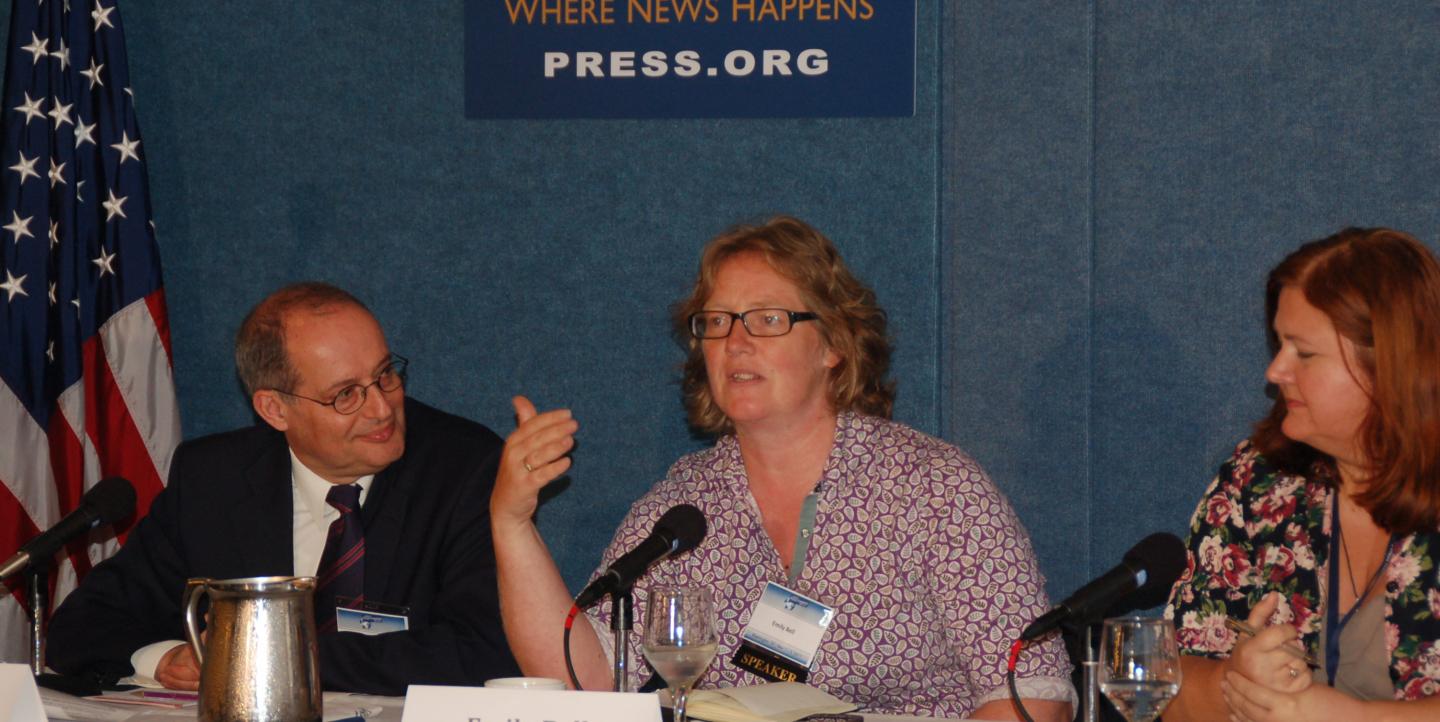Citizen journalists can improve and diversify news coverage with social media, but they must be held accountable for what they write, a panel of journalists and experts said Tuesday at the National Press Club.
Who enforces those standards is still under debate, according to panelists and participants at “Journalistic Standards Reframed,” a panel at World Press Freedom Day in Washington, D.C.
Some said self-regulation should be enough, arguing that it is already taking place.
Large Internet search providers likely will generate a ratings or verification system to help guide readers toward trustworthy news sites, said Emily Bell, director of the Tow Center for Digital Journalism at the Columbia University Graduate School of Journalism.
“I think what is missing … is a set of tools for people to navigate,” she said.
Others contend that governments should provide some oversight.
Government regulations can be effective in holding new media journalists accountable in some countries, said Nigerian blogger Aliyu Tilde after watching the session. Nigerian officials recently began to require that subscriber identification module cards – also known as SIM cards -- in mobile phones be registered. Since registration started, the number of anonymous posts online has dropped dramatically, he said.
“That has put an end to that abuse,” said Tilde, who writes a column on agriculture. “I want freedom, but it comes with responsibility. Otherwise it doesn’t come with any meaning.“
Miklos Haraszti, the moderator of the panel, said that with the ease and immediacy of posting on the Internet, there is little time for fact checking and “ethics, by and large, has collapsed online.” It used to be the editor’s decision whether or not to identify a source. Now the sources decide whether they want to make themselves known, he said.
“We need self regulation in order to support our freedom,” said Haraszti, an adjunct professor at Columbia Law School. “We do it so when we fight for freedom of the press, we have the support of the people.”
Bell contended that some newspapers already are policing their websites. For example, they are requiring online posters to identify themselves, and they are removing offensive comments.
At a time when anyone can be a journalist, traditional media needs to find a way to pass on the values of good journalism – truth, accuracy, balance -- to everyone, said Ioana Avadani, executive director of the Center for Independent Journalism in Romania.
“It is something we have to teach to our children in school,” Avadani said. “I would say journalistic values and standards should not be the privilege of professionals.”
You can read more of IJNet's ongoing coverage of World Press Freedom Day here.
The United Nations Education, Scientific, and Cultural Organization (UNESCO) organizes World Press Freedom Day commemorations to celebrate the fundamental principles of press freedom; to evaluate press freedom; to defend the media from attacks on their independence and to pay tribute to journalists who have lost their lives in the line of duty. For complete information on the 2011 World Press Freedom Day global conference in Washington DC, see www.wpfd2011.org (in English)

